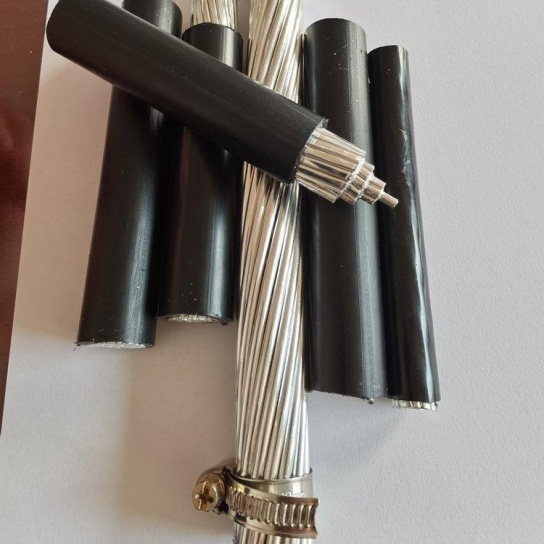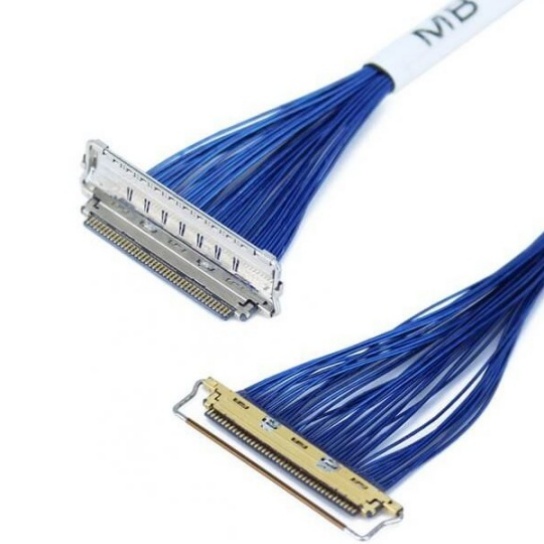How AI Optimizes Aviation Cable Production: Smarter, Safer, Faster Flights Start Here
Aviation cables are the unsung heroes of modern flight. They carry critical power, data, and signals throughout an aircraft, demanding unparalleled levels of reliability, safety, and precision. Manufacturing these complex components traditionally involves rigorous processes and meticulous human oversight. Enter Artificial Intelligence (AI). It’s transforming aviation cable production, boosting efficiency, enhancing quality, and ultimately contributing to safer skies. Let’s explore how.
1. Smarter Design & Development:
- Generative Design: AI algorithms can rapidly explore thousands of potential cable harness configurations based on weight, routing constraints, signal integrity requirements, and manufacturability. This leads to lighter, more efficient designs that might be impossible for humans to conceive manually.
- Material Selection Optimization: AI analyzes vast databases of material properties (temperature resistance, flexibility, weight, cost) against specific aircraft system requirements, recommending the optimal insulation and conductor materials faster and more accurately.
- Predicting Performance: Machine learning models can simulate how cables will perform under real-world stresses (vibration, heat cycles, electromagnetic interference) during the design phase, catching potential issues before physical prototypes are built.
2. Revolutionizing Quality Control & Inspection:
- Automated Visual Inspection (AVI) on Steroids: AI-powered computer vision systems scan cables and harnesses with superhuman speed and precision, detecting micro-defects in insulation, braiding inconsistencies, conductor imperfections, or incorrect connector pin placement that might escape the human eye. This drastically reduces the risk of faulty cables reaching assembly lines or aircraft.
- Predictive Quality: AI analyzes production data (material batches, machine settings, environmental conditions) to identify patterns that predict quality deviations before they happen. This allows proactive adjustments to prevent defects.
- Real-Time Process Monitoring: AI continuously analyzes data streams from production machinery (extruders, braiders, testers), spotting subtle anomalies that signal potential problems like dimensional drift or insulation flaws, enabling immediate intervention.
3. Optimizing the Production Process:
- Predictive Maintenance: Instead of fixing machines after they break (causing costly downtime) or replacing parts on a fixed schedule (potentially wasteful), AI analyzes sensor data (vibration, temperature, power consumption) to forecast when specific equipment (wire cutters, crimpers, testers) is likely to fail. Maintenance becomes proactive, minimizing unplanned stoppages.
- Streamlined Scheduling & Logistics: AI algorithms optimize production scheduling, inventory management of raw materials (copper, insulation compounds, connectors), and work-in-progress flow. This reduces bottlenecks, shortens lead times, and minimizes inventory holding costs.
- Resource Optimization: AI models analyze energy consumption, material usage rates, and labor patterns to identify waste and recommend more efficient practices, lowering costs and environmental impact.
4. Enhanced Testing & Traceability:
- Smarter Testing: AI can analyze complex electrical test results (e.g., time-domain reflectometry or high-potential tests) more thoroughly, identifying subtle failures or degradation patterns that might be misinterpreted manually. It can also adapt test parameters based on product variations.
- Complete Digital Traceability: AI integrates with systems tracking every material component, every process step, and every test result for each cable assembly. If an issue arises (even years later), AI can instantly trace its origins, enabling rapid root cause analysis and precise recalls if necessary, enhancing overall aircraft safety and accountability.
Tangible Benefits: Why It Matters
- Uncompromised Safety: Significantly reduced defect rates lead to inherently more reliable cables, a cornerstone of aviation safety.
- Enhanced Quality & Consistency: AI ensures every single cable meets the exacting standards required for flight, batch after batch.
- Increased Production Efficiency: Less downtime, fewer defects needing rework, and optimized workflows mean faster production times and the ability to meet higher demand.
- Reduced Costs: Savings come from lower scrap rates, less rework, optimized material usage, minimized downtime through predictive maintenance, and more efficient energy/asset utilization.
- Improved Traceability & Compliance: Easier adherence to stringent aviation regulations (FAA, EASA) due to robust digital records and faster issue resolution.
- Faster Innovation: Accelerated design cycles allow manufacturers to respond quicker to new aircraft platform requirements.
The Future is Intelligent
AI isn’t replacing human expertise in aviation cable production; it’s augmenting it. By automating tedious inspection tasks, predicting failures, optimizing complex processes, and unlocking new design possibilities, AI empowers engineers and technicians to focus on higher-value tasks – innovation, problem-solving, and ensuring the absolute highest quality standards.
The result? A more efficient, reliable, and cost-effective manufacturing process producing the incredibly safe cables that modern aviation demands. As AI continues to evolve, its role in optimizing aviation cable production will only deepen, paving the way for even smarter, safer, and more sustainable air travel.






